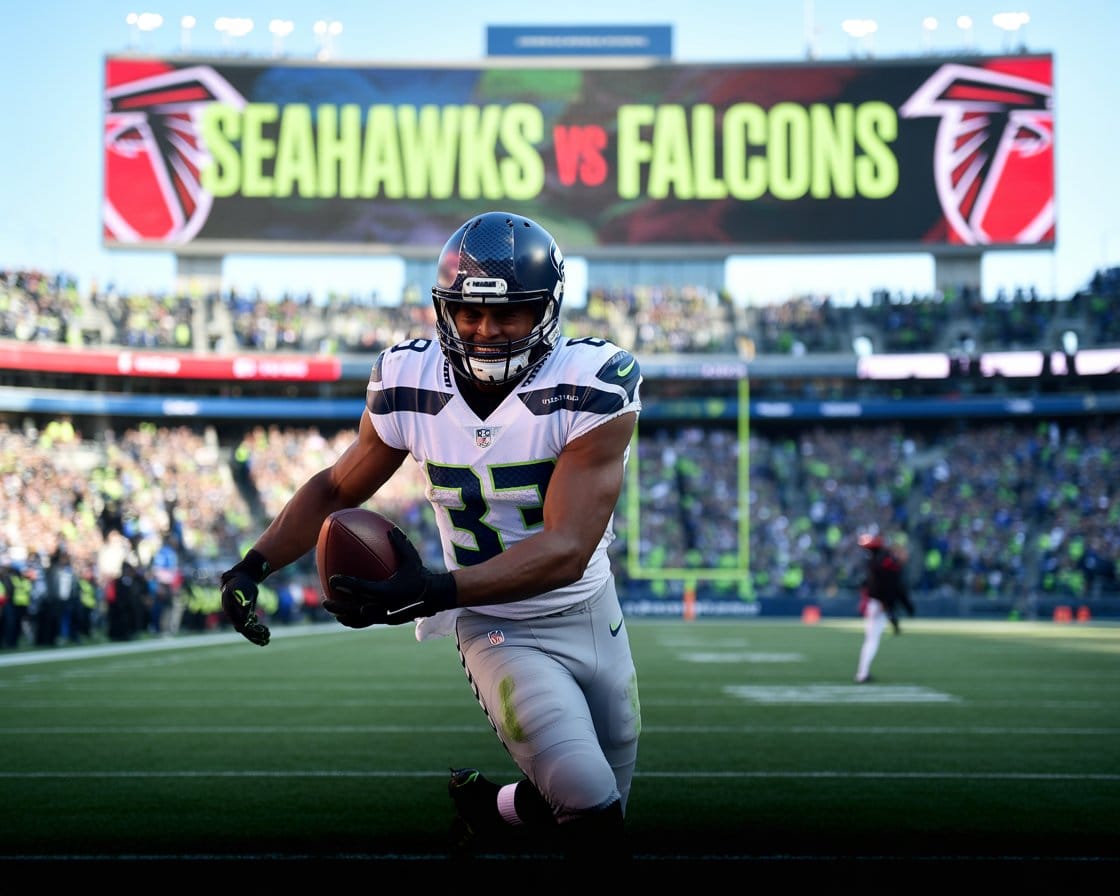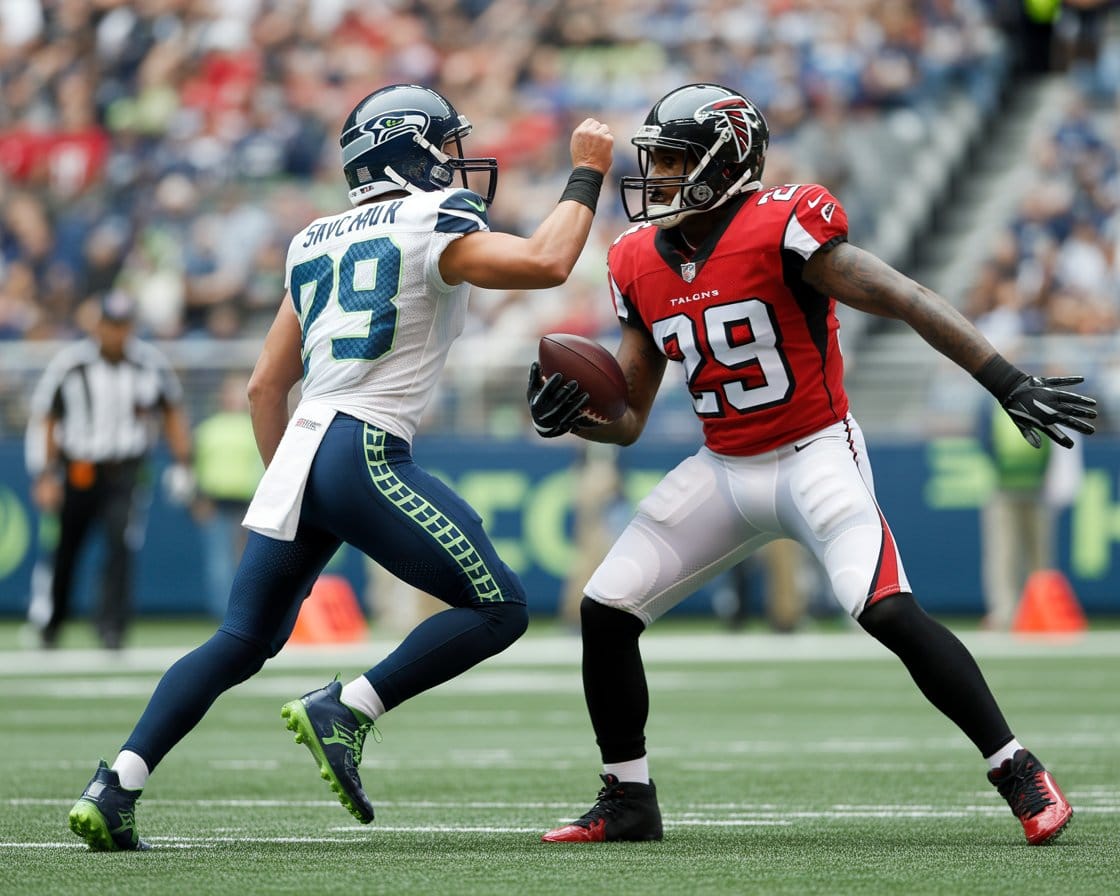
Introduction
The Seattle Seahawks vs Atlanta Falcons clashed in a game that had fans buzzing before kickoff. Both teams came into the matchup with plenty to prove: the Seahawks aiming to solidify themselves as playoff contenders, and the Falcons seeking to shake off inconsistency and demonstrate their ability to compete against strong NFC rivals. On paper, the contest appeared to be close. But as soon as the game unfolded, it became clear that discipline, execution, and decision-making would separate the two sides.
Seattle walked away with a convincing 34–14 win, but the scoreboard only tells part of the story. The Seahawks vs Atlanta Falcons match player stats reveal precisely how this game was won — and lost. From quarterback play to rushing attacks, receiving battles, and turnovers, the numbers paint a clear picture of what went right for Seattle and what went wrong for Atlanta.
In this article, we’ll break down the game in detail. Each section will examine key aspects — quarterbacks, running backs, receivers, defence, and even the fans’ reaction — while providing insights beyond the raw statistics. By the end, you’ll not only know who put up the best numbers, but also why those numbers mattered, and how this game could impact both teams moving forward.
Quarterback Duel: Geno Smith vs Kirk Cousins
Quarterback play is often the deciding factor in modern NFL games, and this matchup was no exception. Geno Smith, Seattle’s reliable leader, had one of his most efficient performances of the season. He finished 18 of 28 passes for 207 yards and two touchdowns with no interceptions. What stood out was his calm under pressure. Smith didn’t try to force risky throws. Instead, he spread the ball to his playmakers, used short routes to keep drives alive, and struck deep only when the opportunity was right. His poise helped Seattle maintain control throughout the game.
On the other side, Kirk Cousins had a more complicated night. Statistically, he outgained Smith with 232 passing yards on 24 completions. He even managed to throw for a touchdown. But the problem? Two costly interceptions. Both came at crucial moments when Atlanta had momentum. Those turnovers not only stopped potential scoring drives but also handed Seattle short fields to work with. The Seahawks converted those mistakes into points, swinging the game in their favour.
When comparing the Atlanta Falcons vs. Seahawks match player stats, the difference is clear: efficiency beats volume. Cousins may have thrown for more yards, but Smith’s mistake-free football had a far greater impact on the outcome. In a game where turnovers were decisive, Smith gave Seattle everything they needed to win, while Cousins gave the Seahawks too many opportunities.
Ground Game Analysis: Kenneth Walker vs Bijan Robinson
The running backs were another critical factor in this matchup, with both sides featuring talented players poised to make an impact. For Seattle, Kenneth Walker III once again proved whyhe’ss considered one of the most promising young backs in the league. He carried the ball 14 times for 69 yards and capped his performance with a 20-yard touchdown run that showcased his balance, speed, and vision. More importantly, Walker’s runs kept the Falcons’ defence honest, preventing them from focusing solely on stopping the pass.
Atlanta leaned on rookie star Bijan Robinson, and he didn’t disappoint in terms of effort. Robinson had 12 carries for 58 yards and a short rushing touchdown, providing a spark in the red zone. His agility and burst were on full display, and at times, he seemed capable of breaking a big run. However, the Falcons went away from him too quickly. Once they fell behind, the play-calling shifted heavily toward passing, which allowed Seattle’s defence to focus on pressuring Cousins.
The Seahawks vs Atlanta Falcons match player stats highlight an essential lesson: balance is key. Seattle’s commitment to giving Walker steady touches helped maintain offensive rhythm. In contrast, Atlanta’s decision to abandon the run early limited Robinson’s impact and made their offence predictable. In the NFL, predictability often leads to trouble — and that’s precisely what happened here.

Receiving Battle: DK Metcalf and Key Offensive Weapons
If there was one offensive star who truly stole the show, it was DK Metcalf. Seattle’s powerhouse receiver turned in a standout performance with four catches for 99 yards and a touchdown. His combination of size, speed, and strength made him nearly impossible for the Falcons’ secondary to contain. On one deep-ball play, Metcalf completely shifted momentum, pulling in a long reception that energized his team and silenced the crowd.
Metcalf wasn’t the only weapon Seattle used effectively. Tyler Lockett chipped in with crucial catches that moved the chains on third down, while tight end Noah Fant provided Smith with a safe option underneath. The variety of targets forced Atlanta’s defence to spread out, leaving gaps that Smith was quick to exploit.
For the Falcons, the receiving corps failed to deliver a standout performance. Yes, Cousins threw for more yards overall, but the production was scattered among multiple receivers without anyone emerging as a game-changer. That lack of a go-to threat hurt Atlanta when they needed a big play. Combined with turnovers, the Falcons couldn’t match Seattle’s firepower.
Examining the player stats from the Atlanta Falcons vs. Seahawks match, Metcalf’s impact was undeniable. One explosive playmaker can tilt the balance of a game, and Seattle had him while Atlanta didn’t.
Team Stats and Efficiency Breakdown
Sometimes, raw numbers tell a different story than the scoreboard. In this game, Atlanta actually finished with more total yards (369) than Seattle (339) and converted third downs at a better rate (53% to 36%). At first glance, those stats suggest the Falcons were moving the ball effectively.
But numbers without context can be misleading. Atlanta’s advantage in yardage and possession was undone by three costly turnovers and nine penalties for 72 yards. Each mistake halted momentum and handed Seattle opportunities. The Seahawks, on the other hand, played clean football: no turnovers and only five penalties. That kind of discipline is often the difference between winning and losing in the NFL.
Seattle also capitalized on its opportunities better. When given a short field, they scored. When they needed a third-down conversion, Smith found the right option. Efficiency doesn’t always show up in flashy stats, but it shows up in the final score.
The Seahawks vs. Atlanta Falcons match player stats prove that discipline trumps raw yardage. Atlanta may have moved the ball more, but Seattle moved it smarter.
Key Turning Points in the Game
Every football game has moments that define its outcome. In this matchup, two turning points stood out above all.
The first came in the third quarter when Geno Smith connected with DK Metcalf on a deep throw that went for nearly 40 yards. That play didn’t just lead to points — it broke the Falcons’ defensive confidence. Seattle fed off the momentum, extending their lead and forcing Atlanta to play catch-up.
The second turning point was Kirk Cousins’ second interception. Atlanta was driving, down by two scores, with a chance to close the gap. Instead, Cousins forced a throw that Seattle’s defence picked off. Within minutes, the Seahawks converted the turnover into another touchdown. What could have been a momentum swing for Atlanta turned into the dagger that sealed their fate.
Turnovers and big plays are often the deciding factors in football, and this game was no exception. Seattle made the most of their chances; Atlanta gave away theirs.
What Fans Are Saying About the Match
After the game, fans on both sides had plenty to say. Seahawks supporters flooded social media with praise for Geno Smith’s leadership and Kenneth Walker’s powerful running. Many called it a “statement win” that showed Seattle is more than just a playoff hopeful — they’re a serious contender. Metcalf’s highlight-reel plays were shared widely, with fans celebrating his ability to dominate even against tough secondaries.
Falcons fans, however, expressed frustration. The recurring themes were turnovers, penalties, and coaching decisions. Many believed Bijan Robinson should have been given more carries, especially early in the game. Others criticized Cousins for not protecting the ball better. The overall sentiment was that the Falcons beat themselves more than the Seahawks beat them.
This split reaction highlights the beauty of sports: one side sees dominance, the other sees missed opportunities. But no matter the perspective, the Atlanta Falcons vs Seahawks match player stats back up the story — Seattle executed better, and that’s why they won.
Final Verdict: Lessons from the Match
Looking back at the whole picture, the lesson is clear: football games are often decided not by who gains the most yards, but by who plays the cleanest, most efficient football. Seattle walked away with the victory because they protected the ball, minimized penalties, and capitalized on Atlanta’s mistakes.
The Seahawks vs Atlanta Falcons match player stats reveal that Geno Smith’s calm efficiency, Kenneth Walker’s balance in the run game, and DK Metcalf’s explosiveness were the keys to victory. On defence, forcing turnovers gave Seattle extra chances it didn’t waste.
For Atlanta, the numbers are frustrating. They moved the ball, converted third downs, and even had a slight edge in possession. However, turnovers, penalties, and a lack of a true go-to receiver hindered their progress. The talent is there, but execution and discipline are still missing pieces.
For both fanbases, this game will be remembered as a showcase of what Seattle can do when everything clicks — and a reminder for Atlanta of how costly mistakes can be.
Read Also: Choose the Perfect Plastic Eyeglass Frames
FAQs
Q1: Who had the better quarterback stats in the game?
A1. Geno Smith was more efficient with 207 yards, 2 TDs, and no turnovers. Cousins had more yards but two costly interceptions.
Q2: Which running back stood out more?
A2. Kenneth Walker’s 20-yard TD and consistent runs gave Seattle balance. Robinson showed promise but wasn’t used enough.
Q3: What was the most significant difference between the two teams?
A3. Turnovers. Seattle had zero, while Atlanta had three, which swung the game in their favour.
Q4: Did penalties affect the Falcons’ chances?
A4. Yes, Atlanta committed nine penalties for 72 yards, killing multiple drives.
Q5: What does this game mean for both teams?
A5. Seattle looks playoff-ready with disciplined execution, while Atlanta must fix turnovers and penalties to compete.







